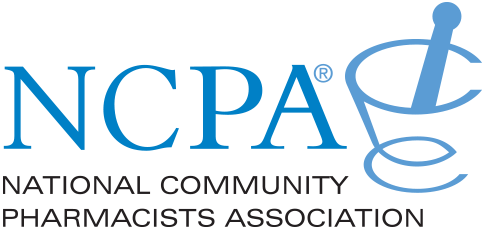
- Spring 2023
- Volume 17
- Issue 1
NCPA Fellowship Allows Pharmacists to Choose Their Own Adventure

Fellows tap into a network of experts, their practice sites, and countless tools they can apply immediately.
A pharmacy degree confers endless possibilities, and you are limited only by your creativity and passion. Entrepreneurship is one of the most versatile career paths and, in pharmacy, it can allow you to shape your dream job. The National Community Pharmacists Association (NCPA) can help you access numerous tools and resources, whether or not you want to own your own pharmacy.
In particular, the Community Pharmacy Fellowship program from NCPA and the Community Pharmacy Enhanced Services Network (CPESN) can help you develop the skills and contacts to pursue clinical opportunities at any practice.
Although dispensing medications will continue to be the hallmark of community pharmacy, the amount of clinical care services being provided at drugstores is growing rapidly and requiring more skilled professionals to establish and oversee them. The most common position title advertised in the industry is clinical services director, but the scope of responsibilities is unique to each entity. What is common to all is that the right candidate must be a thought leader who is open to lifelong learning.
Traditionally, completing residency training at a community pharmacy has paved the way to obtaining the job of clinical services director. This is still a great postgraduate training option, and I would encourage anyone to explore both accredited and unaccredited residencies. If the program prepares you for the job you want, it is worth pursuing. However, such programs require a level of flexibility that not everyone can afford. Additionally, of the 19,000-plus independently owned pharmacies in the country, only approximately 130 offer these programs. Some doctors of pharmacy may find themselves limited by this as well as by geographic location or obligations such as taking care of children or parents.
This is where the NCPA/CPESN Community Pharmacy Fellowship Program comes in. Launched in 2020, it allows fellows to select a practice anywhere in the country and tap into a virtual network of people, sites, and standalone resources that can be immediately applied anywhere.
The program runs from September to August and requires that fellows be licensed pharmacists who can dedicate at least 12 hours per week to working in the pharmacy, applying what they are learning in the virtual classroom. NCPA has partnered with the CPESN and Flip the Pharmacy to deliver 16 modules on innovative topics, from workflow management and medical billing to disease state refreshers on diabetes and asthma.
The modules include recorded lectures, short homework assignments, and a great many resources from topic leaders. The latter are industry greats who give fellows a backstage tour of their own pharmacies and walk them step by step through the implementation of services at their pharmacy. Each module takes about minutes to complete, but that can be done at the fellow’s pace over the course of several days. Topic leaders and fellows meet virtually twice a month for minutes to discuss the material and address any questions.
During the rest of the year, fellows make small changes to pharmacy workflows and are guided through a capstone project on a topic that the pharmacy has had on its wish list and about which they are passionate. Past capstones have included expanding a medication synchronization program, starting point-of-care testing services, and working on medication-assisted treatment for opioid use disorder.
The fellowship costs $7500, or the equivalent of approximately 2 comprehensive medication reviews (CMRs) a week. And pharmacy students on rotation can perform quite a few CMRs every day.
The beauty of the program is that it is a great way for fellows to pitch jobs at their desired locations. Pharmacies can hire them on a 12-month contract and then enroll them in the fellowship. Over the course of the year, fellows can demonstrate their value via the revenue generated by the new services they lead, thus encouraging pharmacies to hire them after the fellowship ends.
In the past, fellows have provided astounding returns on investment, including saving pharmacies $150,000 in inventory costs, funding their position with the revenue generated from their capstone project, and forging much-needed contracts with local partners.
During those months, fellows are never alone and can always reach out to program leads for additional help. They benefit from the experience of leading professionals and learn to create new clinical services for their community while networking with peers across the country who are working toward similar goals. So, what is stopping you? Why wait a second to begin your future?
About the Author
Carlie Traylor, PharmD, is a 2014 graduate from the University of Georgia College of Pharmacy and a 2015 graduate of the PGY-1 Community-based Practice Residency Program at the University of North Carolina at Chapel Hill, which she completed at Moose Pharmacy, in Concord. She is now director of strategic initiatives and student affairs at the National Community Pharmacists Association, where she works with member pharmacies and student pharmacists to cultivate leaders who are engaged in unique, financially viable services beyond dispensing.
Articles in this issue
almost 3 years ago
When Using Social Media, Always Consider Professionalism Firstalmost 3 years ago
Pharmacy Students Experience Compounded Mental Health Stigmasalmost 3 years ago
DEI-Focused Pharmacy Curriculum Paves the Way for Patient-Centered Carealmost 3 years ago
Op-Ed: Nontraditional Pharmacy Career Paths Continue to Gain Tractionalmost 3 years ago
Women in Pharmacy Should Band Together to Overcome Obstaclesalmost 3 years ago
Wellness Support Group Shows Promise in Reducing BurnoutNewsletter
Stay informed on drug updates, treatment guidelines, and pharmacy practice trends—subscribe to Pharmacy Times for weekly clinical insights.


























